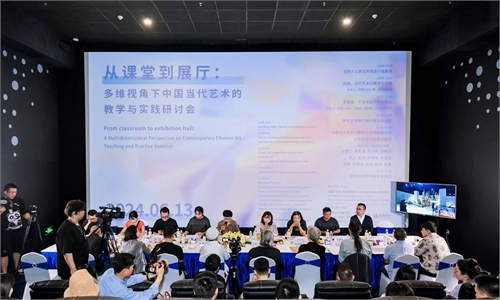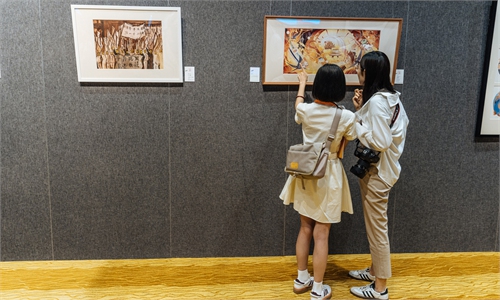ARTS / CULTURE & LEISURE
Rediscovering Chinese mainland through personal experience

Taiwan students ski at a ski resort in Changchun, northeast China's Jilin Province on Jan. 25, 2024. Photo: Xinhua
Recently, internet personality Chung Ming-hsuan from the island of Taiwan made headlines with his transformative experiences visiting the northeastern region of the Chinese mainland.
Known for his previous support of Taiwan's Democratic Progressive Party, Chung's shift in perspective following his trips to the mainland has sparked both praise and criticism across Taiwan island.
In the face of criticism from some DPP supporters, Chung responded, "I fell free when I'm telling the truth." His videos depict a modern, developed mainland where daily life is characterized by efficiency and warmth.
Chung's journey is an example of the power of firsthand experience in reshaping perceptions. In his videos, he enthusiastically praises the mainland's friendly people, delectable cuisine, clean environment, and convenient lifestyle. His observations stand in obvious contrast to the negative narratives often perpetuated about the mainland in Taiwan media and political circles.
Chung's interactions with locals illustrate the deep bonds and mutual respect between people on both sides of the Taiwan Straits, highlighting the importance of cultural exchanges and understanding.
The significance of Chung's journey extends beyond personal revelation. It underscores the importance of breaking through the information barriers that often isolate the society of Taiwan from a nuanced understanding of the mainland.
His firsthand records challenge misconceptions and encourage more people from Taiwan, especially young people, to engage directly with the mainland, fostering a more comprehensive and empathetic view.
In March, Chung traveled to Beijing and Shanghai for the first time, sharing his experiences online of riding high-speed trains, using mobile payments, and exploring Beijing's traditional alleyways, or hutong. He expressed that the trip changed his perception of the mainland, stating, "I really like this place."
Chen Binhua, a spokesperson for the Taiwan Affairs Office of the State Council, responded to reporters in a press release, saying, "Seeing is believing." He encouraged people from Taiwan, especially young people, to visit the mainland themselves to find their own answers rather than relying on biased information or rumors.
He emphasized that the answers may be diverse but fundamentally different from what pro-Taiwan independence forces and some media personalities claim. For instance, Chen noted that the mainland's high-speed trains have seatbacks, and its people not only can afford tea eggs and pickled vegetables but also live well. Additionally, the mainland is progressive and interesting, and its people are warm and friendly, much like Chung described by saying, "There is good food, developed cities and enthusiastic people."
"I want to emphasize that the mainland is not scary," Chen said.
"Those who create an information cocoon on the island and smear the mainland are the ones who are truly scary. The mainland is not backward, but those who talk nonsense with their eyes open and spew lies are the ones who are truly backward," said Chen.
Chung's story serves as a reminder that perceptions are not fixed; they can evolve with exposure to new perspectives. By embracing diverse sources of information and firsthand experiences, the society of Taiwan can move beyond divisive rhetoric toward a more constructive dialogue and mutual understanding.
It's also a call for people from Taiwan to explore beyond the familiar and discover the multifaceted reality of the Chinese mainland, paving the way for a more enlightened and peaceful future between both sides of the Taiwan Straits.


